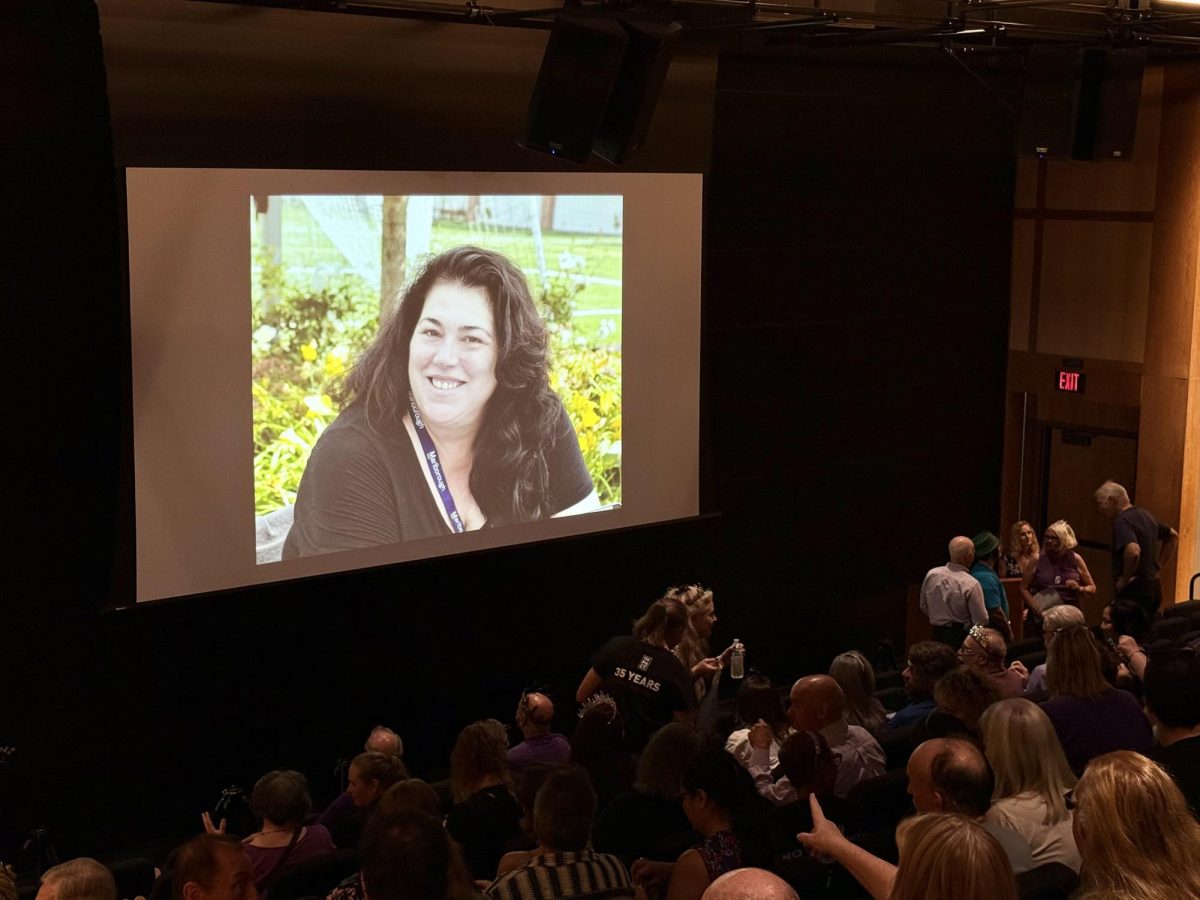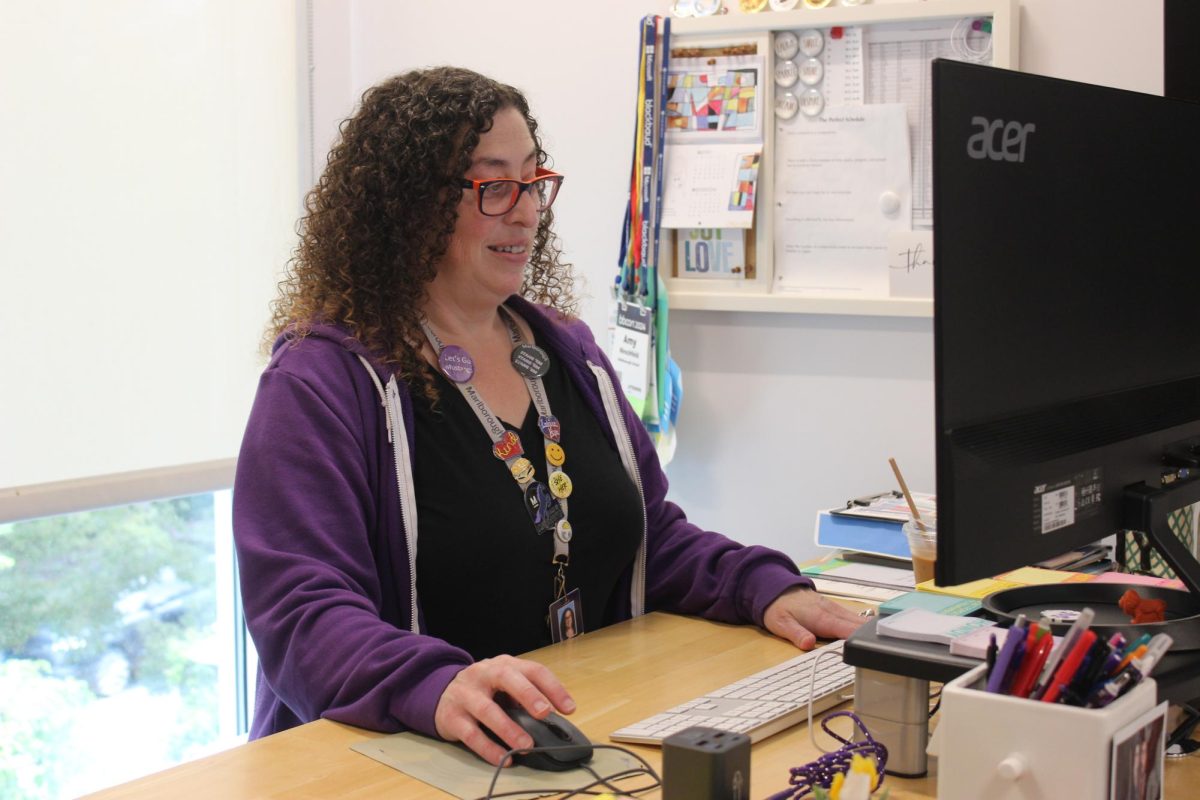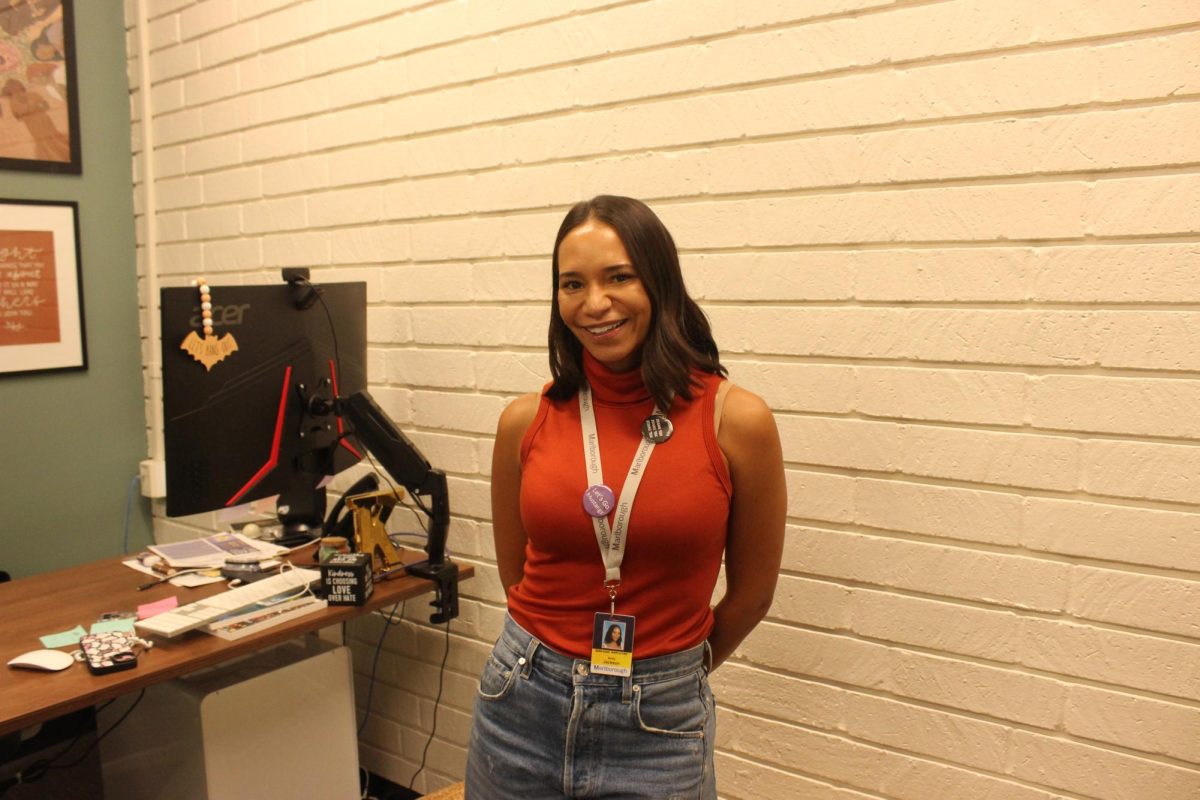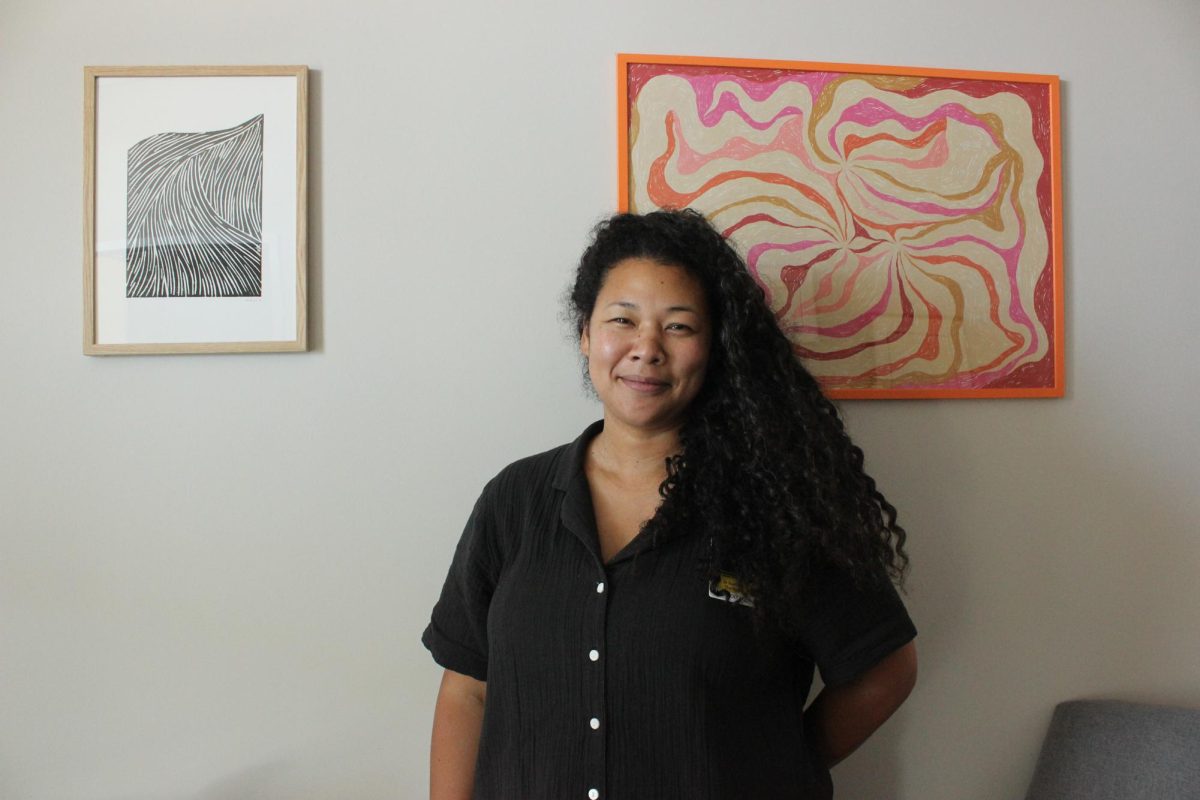Director of the Bureau of Near Eastern Affairs Raymond Maxwell and Public Affairs Officer David Staples of the U.S. State Department delivered a lecture about foreign policy to the Honors History Seminar on Oct. 21 to expose the class to real-life diplomacy in action.
This year, Honors History Seminar is examining the historical roots, development and contemporary significance of terrorism as well as studying major conflicts around the world in which acts of terrorism play a significant role.
“Over the past few years as I’ve taught AP World, it’s become clear to me that most students don’t have a lot of understanding of where terrorism as a modern phenomenon came from, or what the implications of how we respond to terrorism are for our society and culture. Part of my job is to help Marlborough students become informed citizens and critical thinkers about the world around them, and this course is a way to do that,” said Catherine Atwell, Department Head of History and Social Sciences.
Although Maxwell and Staples did not explicitly address the topic of terrorism, they explained how the Bureau of Near Eastern Affairs at the State Department reports on and analyzes trends in the Middle East that affect terrorism, including economic and political policies.
Maxwell quoted a few excerpts from the American Task Force on Palestine speech, given by Secretary of State Hillary Rodham Clinton the day before Maxwell and Staples came to Marlborough. The speech discussed the Israeli-Palestinian conflict and the U.S. State Department’s role in moderating disputes and extremism in the Middle East.
“It struck me. So, I wanted to share with you all today,” Maxwell said.
Maxwell also discussed the role of the media in affecting public opinion, another important topic in the class. Maxwell added personal anecdotes about his experience working in Public Affairs.
“After a stint in the Navy doing engineering work on submarines, I returned to school to complete a degree in Economics,” Maxwell said. “The policy aspects of economics attracted me because I believed, at the time and now, that achieving a better understanding of economic policy tools might put me in a place to help develop better public policy.”
Maxwell also encouraged students to pursue a career in public policy by explaining why his profession is personally rewarding.
“At this point in my career, a large percentage of my effort goes into helping to run the bureaucracy, but there are those priceless moments when what you do actually makes people better off. Experiencing those moments brings me great personal satisfaction,” Maxwell said.
Amy Snyder ’11 said that she walked away from the presentation with a better understanding of government and public policy.
“The lecture gave me insight into our government and real-world diplomacy in action. I don’t know that much about the national government, so this helped explain a lot to me,” said Snyder.
Atwell agreed that Maxwell’s presentation gave the class a better understanding of diplomacy in action.
“I think the speaker helped students understand what the day-to-day life of a diplomat consists of, as well as the limits on what a diplomat can do,” she said.
According to Atwell, the Honors History Seminar class will continue to engage with diplomats and other global affairs experts with a variety of perspectives throughout the semester. On Nov. 9, Atwell took her students on a field trip to a World Affairs Council lecture from His Excellency Maen Rashid Areikat, the Palestine Liberation Organization’s Representative to the United States. After a student-only Q&A session with His Excellency, the class heard him speak on the topic of “Middle East Peace: The Palestinian Perspective.”






